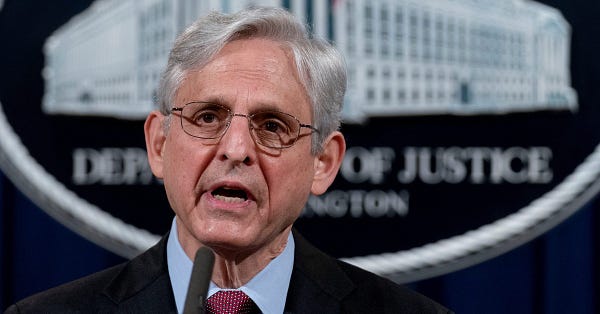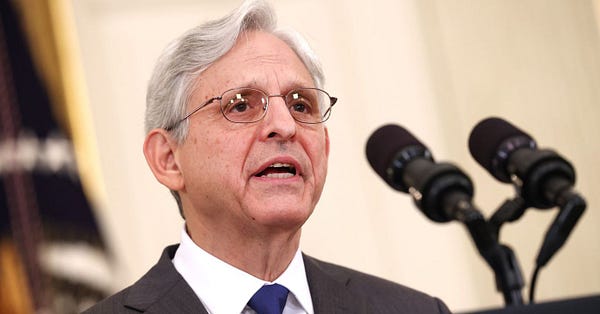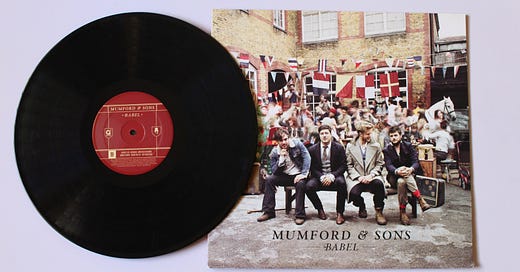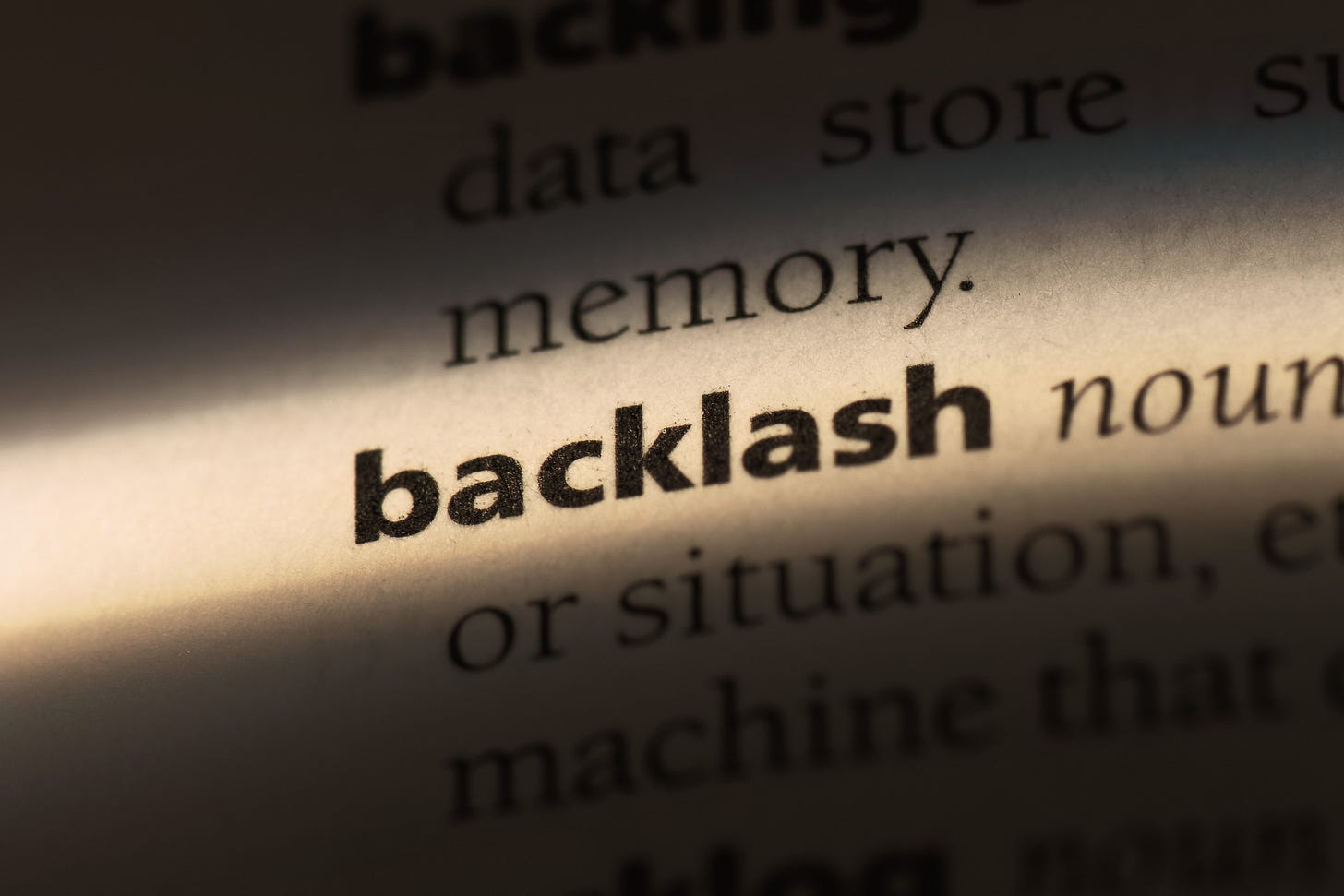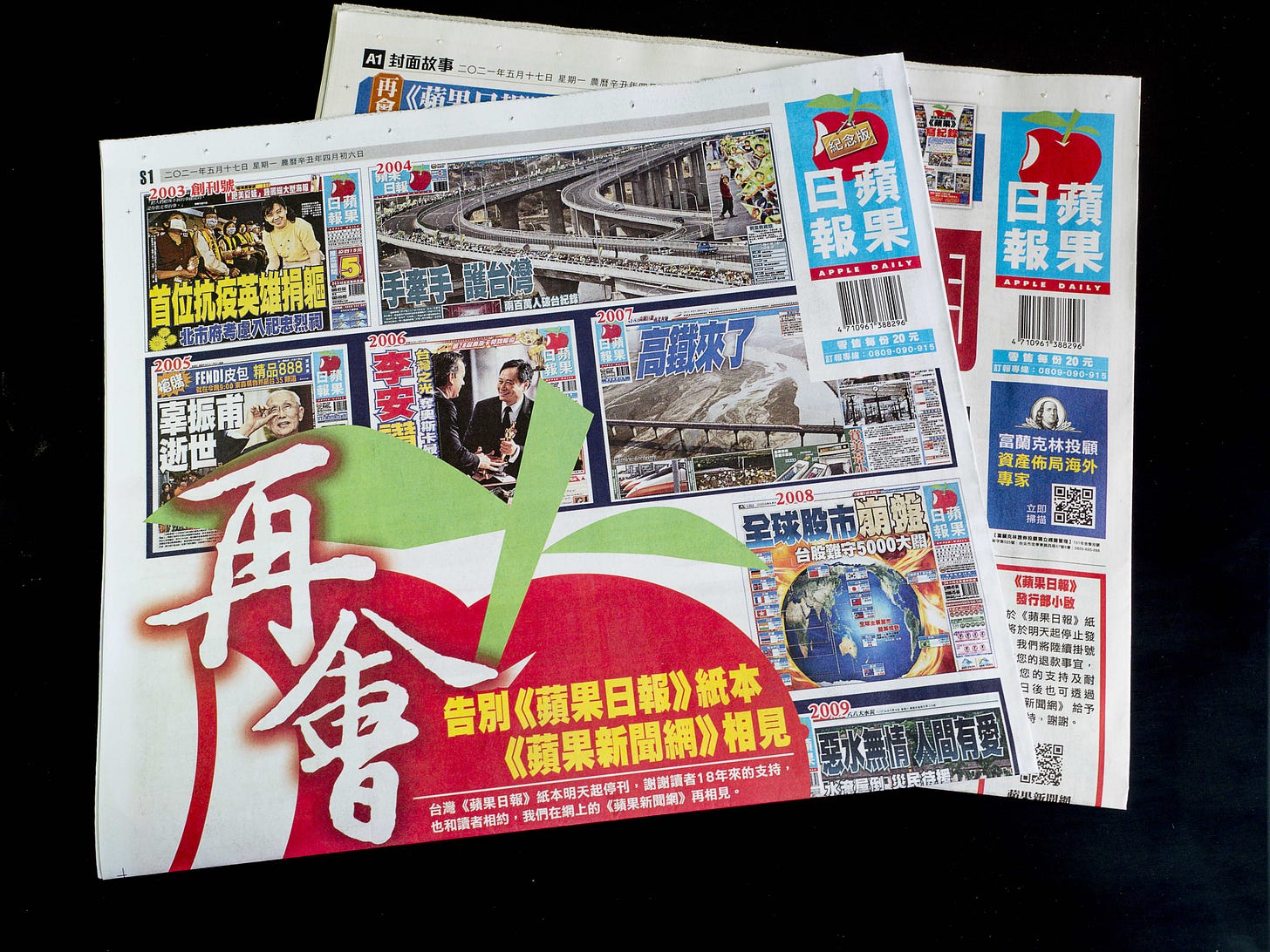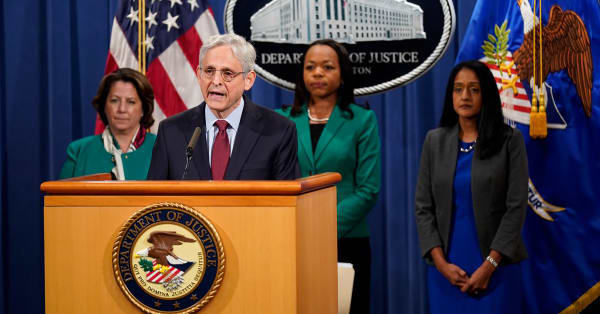E-Pluribus | June 25, 2021
Cancel culture comes for an English folk rock musician, the CRT backlash is real, and the lesson of Apple Daily in Hong Kong.
A round up of the latest and best writing and musings on the rise of illiberalism in the public discourse:
Winston Marshall: Why I’m Leaving Mumford & Sons
After an exhausting few months triggered by a simple tweet about a book, Winston Marshall, a (now former) member of the English folk rock band Mumford & Sons had enough. Marshall’s experience with cancel culture is instructive of the unforgiving and uncontrollable nature of the phenomenon and how those caught up in it are damned if they do or don’t.
I have spent much time reflecting, reading and listening. The truth is that my commenting on a book that documents the extreme Far-Left and their activities is in no way an endorsement of the equally repugnant Far-Right. The truth is that reporting on extremism at the great risk of endangering oneself is unquestionably brave. I also feel that my previous apology in a small way participates in the lie that such extremism does not exist, or worse, is a force for good.
So why leave the band?
On the eve of his leaving to the West, Solzhenitsyn published an essay titled ‘Live Not By Lies’. I have read it many times now since the incident at the start of March. It still profoundly stirs me.
“And he who is not sufficiently courageous to defend his soul — don’t let him be proud of his ‘progressive’ views, and don’t let him boast that he is an academician or a people’s artist, a distinguished figure or a general. Let him say to himself: I am a part of the herd and a coward. It’s all the same to me as long as I’m fed and kept warm.”
For me to speak about what I’ve learnt to be such a controversial issue will inevitably bring my bandmates more trouble. My love, loyalty and accountability to them cannot permit that. I could remain and continue to self-censor but it will erode my sense of integrity. Gnaw my conscience. I’ve already felt that beginning.
Read it all.
Charles C. W. Cooke: The Backlash against Critical Race Theory Is Real
Critical Race Theory is quickly becoming shorthand for all things race-related, so anyone not willing to accept it in toto risks being labelled racist. Charles Cooke writes that, although proponents may score some political points with dismissive mockery, they are also running a risk of alienating parents who are less concerned with academic and social theories than they are with what is best for their children.
If they wish to, figures such as Mayer can spend the next few years insisting that the resistance to critical race theory that we are seeing from parents across the country is little more than a mirage. Fingers firmly in ears, they can maintain that their detractors have invented the controversy from whole cloth, that an astroturfing effort by the Koch Brothers or the Manhattan Institute has tricked them, or that their objections ring hollow because they don’t know what critical race theory “actually” is. Sneering, scoffing, and laughing off the revolt, they can submit in anger that those complaining about the development are suffering from “white fragility” or are engaged in a “moral panic” or are just trying desperately to prevent their kids from learning about slavery and civil rights.
What they can’t do, however, is make any of that true.
Precision in language is important, and yet, after a certain point, it matters less what we choose to call a given trend than that we acknowledge that said trend exists. And mark my words: The backlash against critical race theory most certainly exists. It is being driven by real people, many of whom I have seen with my own eyes; it has been constructed atop a discrete and comprehensible set of objections; and it is being fought on behalf of a class of citizens — children — whose interests arouse the rawest emotions in all of politics. Those who dismiss this development too harshly or too pedantically do so at their peril.
Read it all here.
L. Gordon Crovitz and Mark L. Clifford: What China Did to Apple Daily, It Could Do to Any Company
As China continues to crack down on dissent in Hong Kong, L. Gordon Crovitz and Mark Clifford write at the Wall Street Journal that this is just the beginning. Under the guise of national security, the Chinese Communist government wields dictatorial control over not just individuals, but private companies as well, and there’s no reason to believe the CCP will not continue to tighten its grip.
The National Security Law empowers one official to make it a crime for a publicly traded company to operate, even when no one has been convicted or even charged with a crime. Mr. Lee justified these steps by claiming articles published by Apple Daily violate the security law. Arrested Apple Daily journalists and executives were interrogated about more than 100 news stories and opinion pieces, articles and videos by Mr. Lai and others, and on its English-language website. But authorities refused to disclose a list of allegedly offending articles, making it impossible to know the basis of any charges.
Hong Kong’s Basic Law, the miniconstitution that governs the territory, promises that “Hong Kong residents shall have freedom of speech, of the press and of publication” and that no Hong Kong resident “shall be subjected to arbitrary or unlawful arrest, detention or imprisonment.” This story of what happened to Apple Daily is only partly about undermining the free press. It’s more broadly a warning of what can happen to any company operating in Hong Kong that the authorities claim committed some offense under the vague terms of the National Security Law.
There is sad irony in what happened to Apple Daily. Hong Kong was transformed from a barren rock to a world business and financial center by immigrants from mainland China, such as Mr. Lai, who flourished under the rule of law developed when Hong Kong was a British colony. The free flow of information enabled prosperity and broad freedom. Now, Hong Kong shares and bank accounts can be frozen on the order of a single official, destroying private enterprise as well as freedom.
Read the whole thing.
Around Twitter
Several responses related to the Winton Marshall piece above:




A Jeffrey Sachs thread on proposed anti-Critical Race Theory legislation in Pennsylvania, and David French weighs in:






Clearly the Biden Justice Department’s decision to sue Georgia over its voting laws will be polarizing. A sampler:

